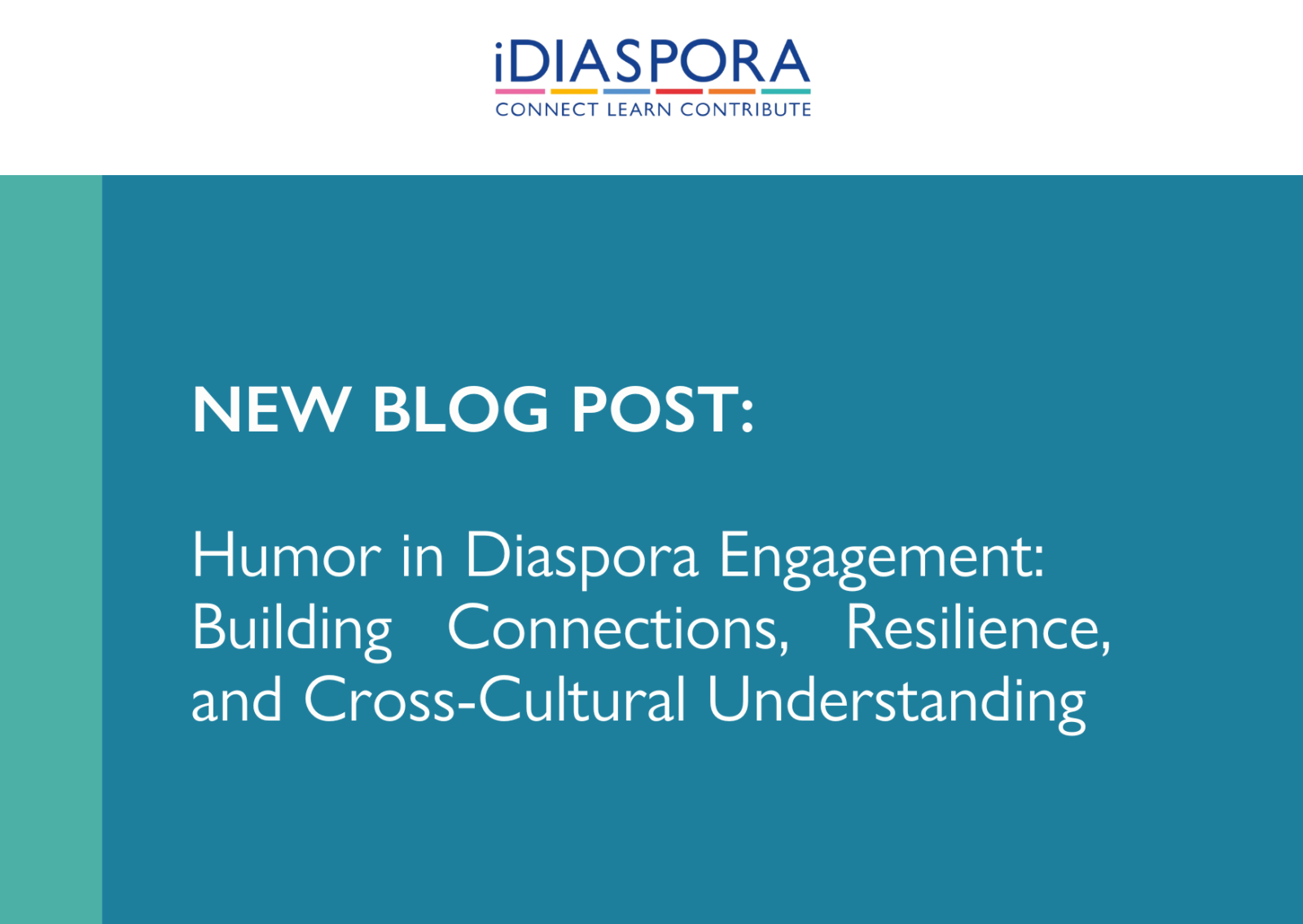Humor in Diaspora Engagement: Building Connections, Resilience, and Cross-Cultural Understanding

In recent months, I have been reflecting on the book “Humor, Seriously: Why Humor is a Secret Weapon in Business and Life” by Aaker and Bagdonas. Its exploration of organizational psychology and management feels especially relevant to diaspora engagement, and I wanted to share some thoughts on how humor connects to this field.
Behavioral sciences have shown that humor can significantly impact businesses by fostering bonds, boosting creativity, and building resilience. Workplaces benefit immensely from elements like fun, laughter, and human connection. From my experience as a researcher in transnationalism and migration, particularly during fieldwork, I have also come to realize how humor can bridge connections, build rapport, and ease difficult situations.
In both my research and current work in an international organization, I’ve noticed that humor is not only a powerful tool but also deeply tied to our cultural origins. We are shaped by the humor we grow up with, which makes us appreciate it in unique ways. While mass media exposes us to common forms of humor, I’ve found that humor evolves with time, influenced by both individual agency and societal structures. For example, it took me some time to appreciate sarcasm—a style less common in Mexico yet prevalent in other cultures—and now, I couldn’t imagine my life without it!
Humor also plays a significant role in power dynamics, affecting how we perceive and interact with others. Aaker and Bagdonas (2020) note that the ability to generate and appreciate humor correlates with intelligence, making it a valuable tool in effective negotiation. Moreover, humor makes people memorable and draws attention in ways few other tools can.
Beyond power, humor is key to building bonds and fostering trust. Laughter creates instant connections, and comfortable, friendly environments encourage innovation by promoting psychological safety. Humor also plays a crucial role in resilience, it helps us navigate emotional challenges, reduces stress, and aids in recovery from difficult moments.
From observing members of the diaspora, I’ve seen how their unique ability to adapt and deploy different humor styles enhances their capacity to engage and entertain. Their awareness of multiple cultural contexts, combined with a deeper understanding of diverse social dynamics, gives them a heightened sensitivity to nuances in various environments. This exposure to different contexts allows them to unpack emotions, realities, and analogies more fluidly. Moreover, as diasporas are inherently resilient populations — navigating life between at least two lands — they have learned to adapt and thrive, often using humor as a bridge.
In conclusion, humor serves as a powerful tool for fostering connections, building resilience, and bridging cultural divides. Within diaspora communities, the ability to navigate multiple contexts and adapt to diverse environments enhances their use of humor as a way to engage, relate, and thrive. Diasporas, by their very nature, embody resilience and adaptability, and humor often becomes a valuable means of coping and creating bonds across different countries. By recognizing and embracing humor’s role in these dynamics, we can unlock deeper insights into human connection and strengthen relationships both personally and professionally, particularly in the context of global engagement.


